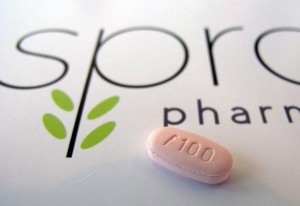Last week the news media was buzzing over a penis transplant. The man who suffered from penile cancer was open about his choice to go public to encourage other men who’ve lost their genitals to cancer or to military combat. I consider the story one giant step for mankind. Men are usually mum about such things.
Now, what if the shoe was on the other foot? Would the news media discuss a vagina transplant? Doubtful. In the same vein, commercials can advertise pills for erectile dysfunction, but how many ads have you seen that address women’s sexual dysfunction? While women may not be mum about their nether parts, discussing them publicly still creates unease or off color comments.
It happens that sexual dysfunction in many women is more common that you may realize. In fact 70 percent of breast cancer survivors experience sexual dysfunction (the inability to enjoy sex) in the two years after completing treatment. I address the topic in my book, “Getting Things Off My Chest: A Survivor’s Guide.” Many pre and post menopausal women experience sexual dysfunction. Some take the matter into their own hands; others file it under “growing older” and do nothing.
The conversation need stimulating. Unfortunately many women (and their partners) who experience intimacy issues often feel shame and are embarrassed to discuss it. For whatever reason, “penises” and “erectile dysfunction” seem more acceptable to discuss but “women’s issues” such as vaginal dryness, painful intercourse and achieving pleasurable sex are off limits.
We have made some inroads since 2010 when U.S. television networks prohibited tampon maker, Kotex, from using the word “vagina” or “down there” in its commercials. Read this article. Meanwhile, network kings had no problem allowing frank conversation and large advertising expenditures to talk about gas, diarrhea, constipation and hemorrhoids. It’s all “down there.” Talking poo was not taboo, but talking about women’s parts was.
Today, genital talk- within compliance- has opened up on the airwaves. Comedians crack jokes and drug and feminine hygiene companies cast commercials. The conversation is still about bodily dysfunction (e.g., erectile, urinary, constipation) versus on pleasure (e.g., arousal, stimulation). However bigger topics are being tackled that are changing the conversation…and attitudes, most notably gender reassignment.

The conversation continues other ways as well. For example:
This article in the May 22nd New York Post: “A Vagina Costume is Taking Over New York” Read full story here. The PR stunt by an organization called Conceived in Brooklyn focused on women’s reproductive rights

Conceived in Brooklyn’s vagina costume tours New York to promote women’s reproductive rights. Photo: Shane LaVancher
An ad campaign has been launched by a brand of period proof underwear called THINX whose message is “committed to breaking the taboo surrounding menstruation.”

Go with the flow. Rethinking menstruation.
A product called Fiera® Arouser for Her™ helps enhance sexual arousal and desire in postmenopausal women or women of any age for whom arousal needs a little help. I recently interviewed Dr Leah Millheiser, Chief Scientific Officer of Fiera’s maker, Nuelle, for a Fearless Fabulous You! podcast on the subjects of sexual dysfunction in breast cancer survivors and in post menopausal women.
A non-hormonal FDA approved”female Viagra” pill called Addyi is on the market.

Men have purple pills. Women have pink ones. Personally, I prefer natural ways to enhance pleasure over medication whenever possible.
As a woman I stand on the side of owning the right to make personal choices for your body and owning up to ensure all parts of your body are protected and stay healthy. We should never fear or feel shame about our bodies, abuse them (or be abused) or deny ourselves the right to enjoy them. As I grow older I only want to live better, in good health and with more pleasure! How about you?
Women have fought for decades to break through gender barriers to achieve equality. Now it’s time to continue the call to break through taboos and achieve full equality for our bodies, our selves and for women around the world.
If you agree, please share this post or visit my Facebook Page to share.










